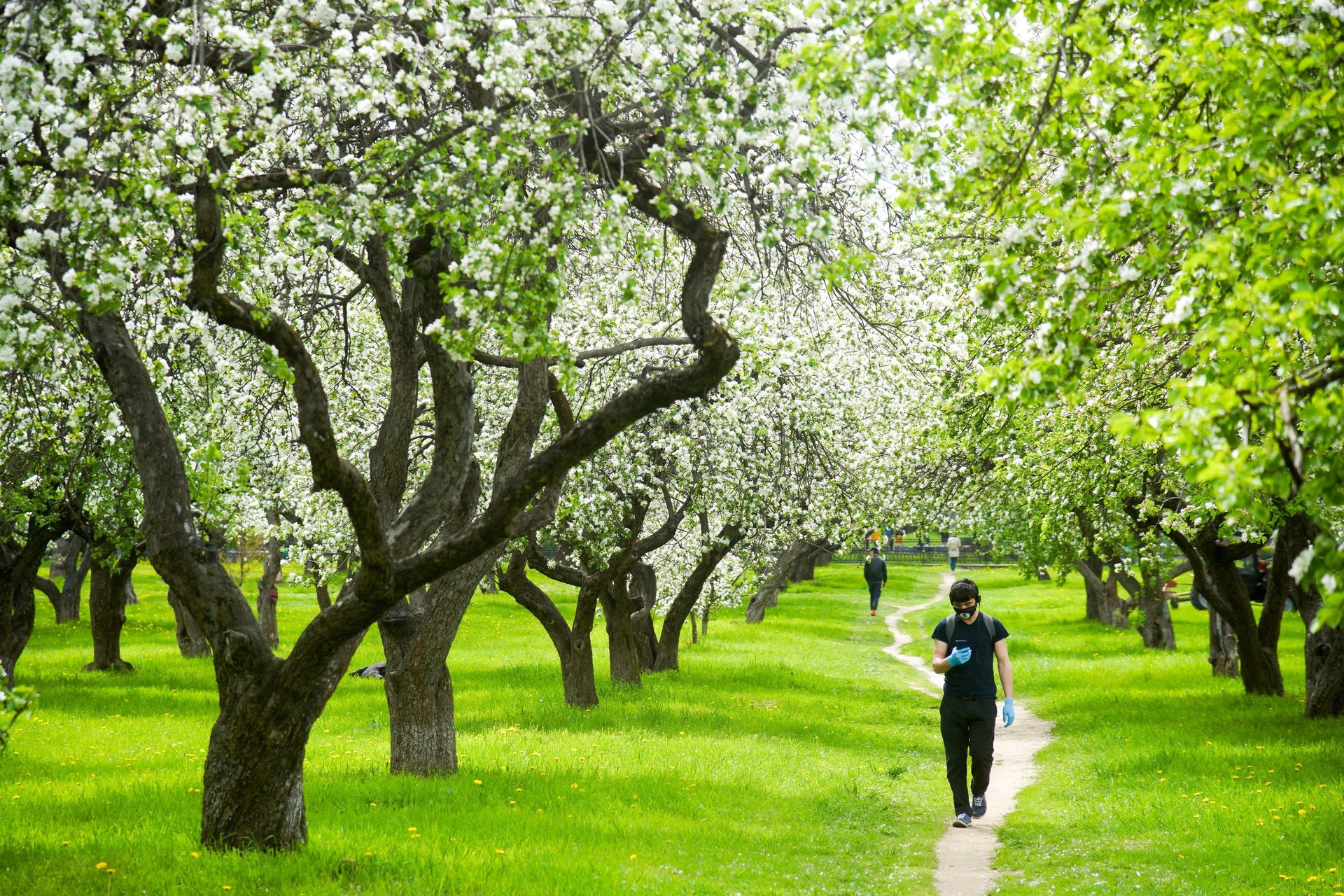In Moscow, on June 1, the second stage of easing the restrictions imposed due to coronavirus comes into force. Now, city residents will be able to go outside for walks and sports in accordance with the rules established by the mayor's office in order to avoid large crowds and the spread of COVID-19. For free access, city parks and green areas will be reopened.
Special schedules designed for residents of metropolitan houses are designed to prevent the second wave of the spread of coronavirus in the capital. At the same time, they will allow people to increase physical activity without harming their health. Mandatory wearing of masks, which is also observed in the capital, will help to protect people from infection with the virus.
“It is too early to completely abolish the regime of self-isolation, but the time has come when we can afford to regularly visit the fresh air,” said Mayor Sergei Sobyanin.
During a meeting with Vladimir Putin, he explained that walks on schedules will take place in test mode for two weeks. If the epidemiological situation worsens, the relaxation of restrictions will be suspended.
- RIA News
- © Nina Zotina
Deputy Mayor Anastasia Rakova said that if the situation does not worsen, the next stage of lifting restrictive measures may begin in two weeks.
She explained that the city authorities will evaluate the effectiveness of the walking regime, after which they will make decisions on further concessions. Rakova noted that the experimental walking mode may seem difficult, but this is a necessary measure.
“What will happen if Muscovites yearned for a walk at the same time all come out?” Of course, we are very afraid of this situation ... In this case, it’s better to act slowly, gradually, but it’s right to go to the opening of the city, rather than rolling back, ”she explained in an interview with Russia 24.
Rakova also urged Muscovites to have patience to prevent the deterioration of the epidemiological situation.
The mayor's office has repeatedly emphasized that the lifting of restrictions in the capital is being carried out in stages, since their abrupt cancellation can offset all the successes achieved in the fight against the disease.
So, Sobyanin previously recalled that, despite the decrease in the number of cases, about 2 thousand new cases of COVID-19 are recorded daily in Moscow. Removing restrictions too quickly can lead to a sharp increase in the number of cases and an increase in the number of deaths.
“Of course, the increase in the number of people on the streets and in parks increases the risk of coronavirus infection. To prevent this, the mask regime will be strengthened and certain rules for taking walks will be established, ”he explained.
It is worth noting that about 45% of those infected with coronavirus in Russia carry the disease asymptomatically. This was stated by the head of Rospotrebnadzor Anna Popova.
- AGN "Moscow"
- © Alexander Avilov
In addition, the head of the Main Control Department of the capital, Yevgeny Danchikov, said that young people, adolescents and middle-aged people are more likely to violate the self-isolation regime in Moscow.
“Young people, adolescents and middle-aged people are still quite negligent in regard to the requirements and the risk to which they themselves expose themselves,” he said in April.
Meanwhile, the schedule of walks will allow to divide the flow of people and prevent mass crowds. The schedule for Moscow residents has already been published on mos.ru and on Yandex.Maps. Anyone can get access to the schedule.
The exit to the street according to the schedules is also valid in a number of European countries. So, in Spain from May 2, adults aged 14 to 70 years are allowed to play sports from 6 to 10 in the morning and from 8 to 11 in the evening.
Also in Europe, which was hit hard by the pandemic, large fines were imposed for violating the self-isolation regime. For example, in France, the penalty for non-compliance with quarantine was € 135, and for repeated violation - € 200. In early April, French Interior Minister Christophe Castaner said police had already issued 480,000 fines to self-isolation violators. In Belgium, sanctions ranged from € 200 to € 4,000.
The timely adoption of various measures to combat coronavirus, as well as a smooth exit from the restriction regime, reduce the number of patients and also avoid a repeated increase in the number of infections in the future. Previously, the WHO said that now the world is in the middle of the first wave of a pandemic.
Michael Ryan, Director of the WHO Health Emergencies Program, noted that coronavirus incidence could “jump” at any time if countries began to weaken measures against COVID-19 too early.
In particular, a sharp increase in the incidence was noted in the Chinese province of Hubei, where victory over the coronavirus had previously been announced. Also, a surge in the number of new cases of incidence occurred in South Korean Seoul, after the authorities decided to open bars and restaurants.
- US citizens on California beach during COVID-19 pandemic
- Reuters
- © Patrick T. Fallon
A difficult situation is also observed in a number of European countries, which delayed the introduction of strict restrictive measures. In particular, in the UK, where the authorities did not initially enforce quarantine, almost 38 thousand deaths and more than 270 thousand cases have been recorded at the moment.
The United States, where citizens continued to go on picnics and walks at the height of the epidemic, continues to be in first place in the number of deaths (more than 101 thousand people) and infected (more than 1.7 million people).

